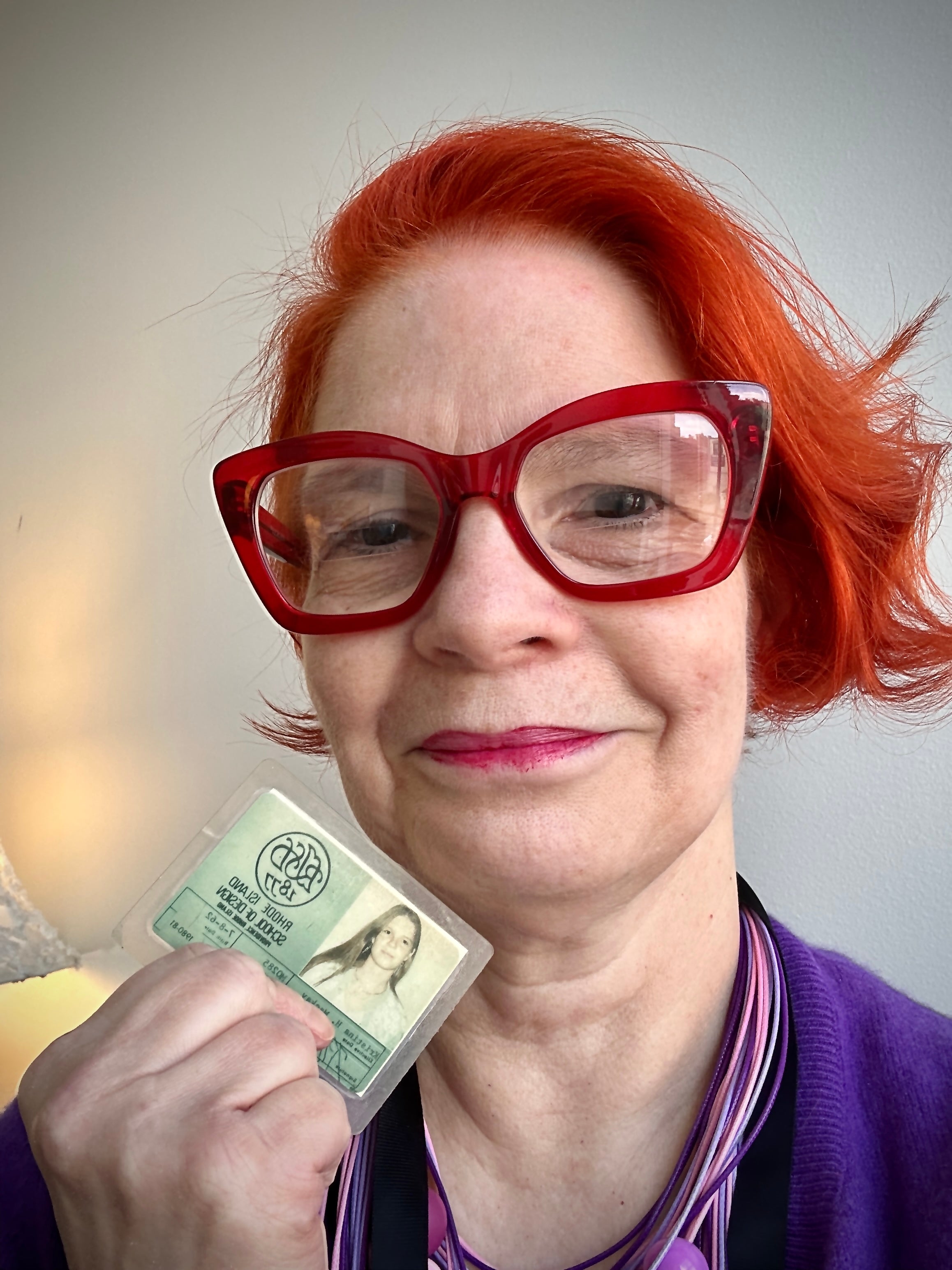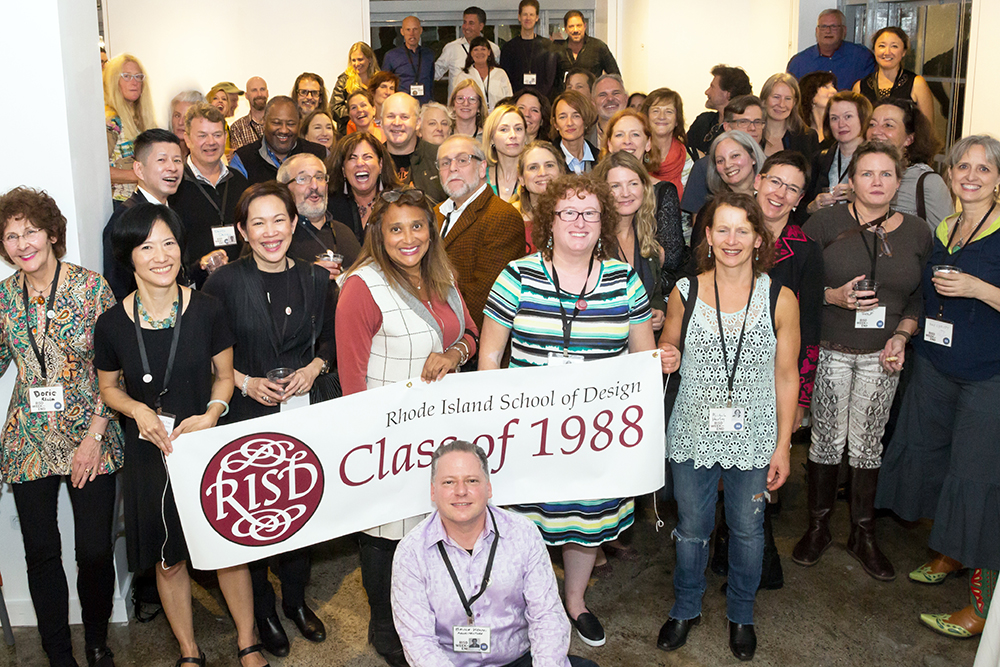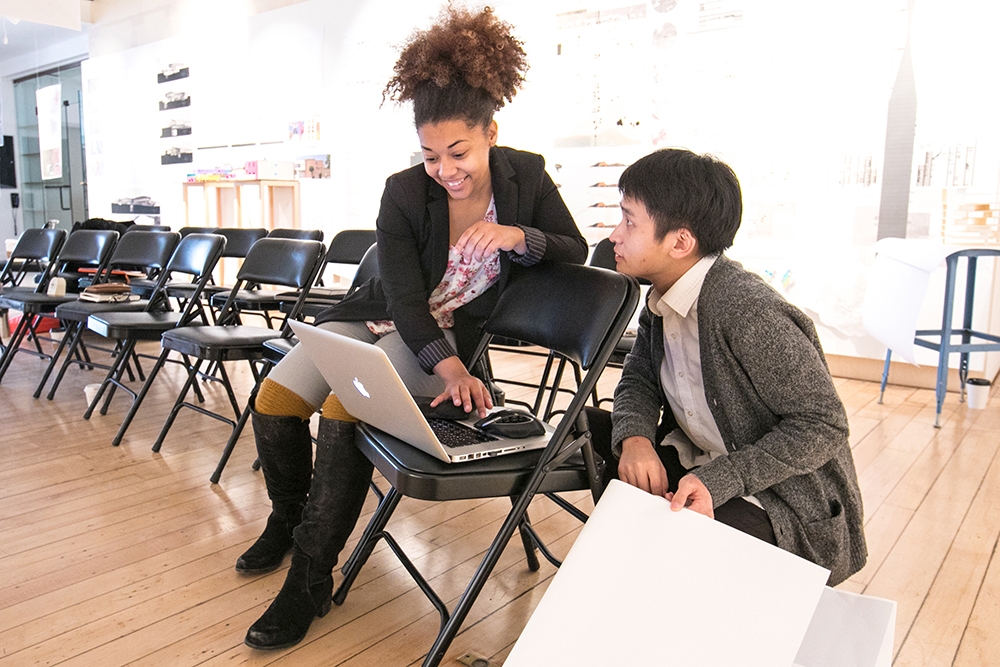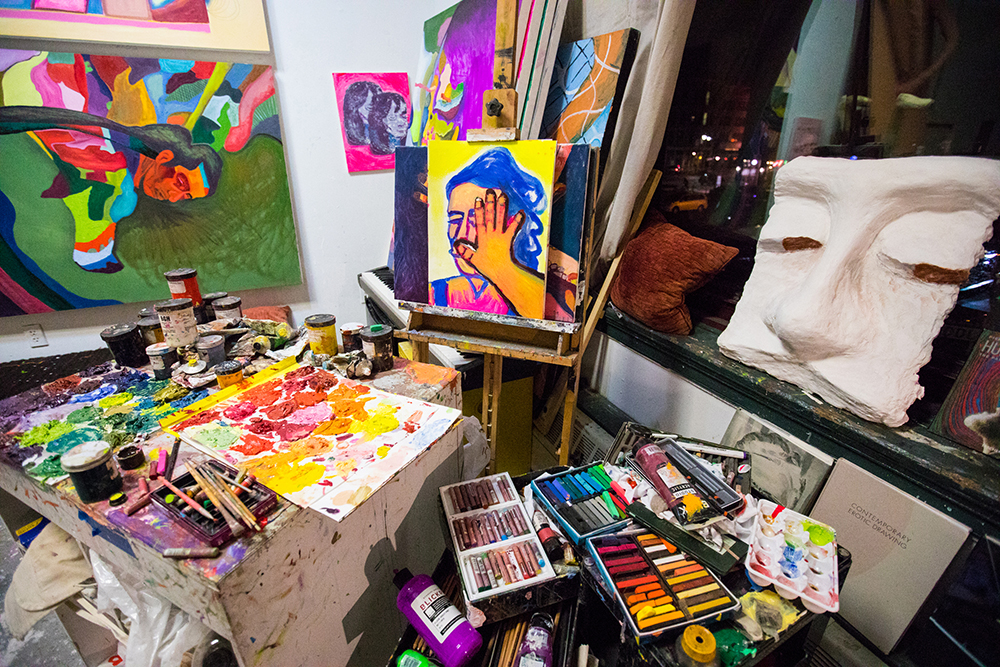
RISD Works Series: Kristina Lavoie, CAPS Staff Counselor III
From the dining hall to the mailroom and beyond, RISD staff work hard to make the campus a home for our students.
RISD has bookended Kristina Lavoie’s entire adult life. An alum from the Class of 1985 with a BFA in photography, Kristina returned to RISD in November 2024 to support our students as a staff counselor with Counseling and Psychological Services (CAPS). Kristina brings diverse experience to her position, and although she did not pursue a career as an art maker, Kristina has used what she learned at RISD in every role that she has had.
What is CAPS?
CAPS is RISD’s Counseling and Psychological Services, which provides services to students at no extra cost to them or their families. CAPS is firewalled from the other departments so that students can feel comfortable speaking to us in confidence. All CAPS student interactions are confidential, with three exceptions, as required by law.
Students can reach out to CAPS on their own, or be referred through a CARES report (Concern, Assessment, Response, Evaluation). Students' involvement with CAPS is entirely voluntary.
How would you explain your role with CAPS to our families?
Through CAPS, I provide counseling to students for any number of reasons. It can be anything from adjusting to the college environment and managing anxiety and stress to students who are experiencing significant mental health problems. I work with students on an individual basis, usually in the office but occasionally virtually if that is needed. I prefer working with them in person because the foundation of my work is that presence is very important.
How do students work with you?
Often, we contact a student because we have received a CARES report (Concern, Assessment, Response, Evaluation). As it is voluntary, the student may or may not decide to give us a call back. When they reach out, their first appointment is a needs assessment. A needs assessment helps us understand the student’s history and what is currently on their minds. Needs assessments also include a safety assessment.
I will always ask if a student has a preference for who they would like to meet with, which could take into consideration gender, age, or similar lived experience. It can be something as random as the person who teased you in the fourth grade had orange hair, and you will not be able to concentrate on anything if you are meeting with someone with orange hair. I try to assign someone who will meet their needs, whether that is me, someone else at CAPS, or someone in the community. In therapy, the most important thing is that you feel safe with the person you are meeting with, so I want them to have the best fit for their needs. I work a lot with students who have experienced trauma and students who are neurodivergent, but we have a team that has a lot of different expertise.
What is something that you find most rewarding about working with our students?
I just really like them.
Here at RISD, my work supporting students doesn’t always involve counseling. I had an opportunity to help a student with an idea for a project related to mental health and wellness, which was such a cool surprise. The student was designing objects that could be used by someone experiencing certain types of stress behaviors. They brought prototypes, and we talked about the language used in this field [mental health and wellness]. It was great seeing students working towards creating something not necessarily to help themselves but to help others.
Do you have any favorite RISD experiences that influence your work today?
My foundation year really made an impression on me. The people I am still in contact with from my student years are from that foundation year. My very first class was Mike Fink’s 8 am English class. I remember we were all bleary-eyed. The chairs were arranged in a circle with a platform in the center. Mike Fink came in and said good morning to the class, and a model got on the table, disrobed and took a pose. Then Mike Fink said ok, take out your pencils and paper and I want you to represent the model in words.
As art students, a lot of us had experience representing a model visually figure drawing with pencil. It was a way for him to connect a different type of expression to something that people in the class already had some experience with, and I love that. It informs how I approach my work today.
What do you want families to know about CAPS and supporting student wellness at RISD?
We care about our students. We know that students can be very hard on themselves, and they really want to do well. We want to help them meet their goals. However, it is important to remember that if they are over 18, regulations and laws limit what we can share. We are here to listen to you and understand your concerns, but we are limited in what we can share.
My advice is always to try your best to ask your student how things are going and leave space for them to answer. Leaving them space to answer can be really hard, but you need to give them space to be able to answer honestly. It can also stir stuff up for you as a family member. Even knowing we exist is a good place to start. If communications or behaviors suddenly change significantly, families will know that there is something that might help. They might suggest to their students that CAPs could help them.
If you have concerns about your student, or want to know more about CAPs and the services they offer, please visit the CAPS Resources for faculty, staff and families.



